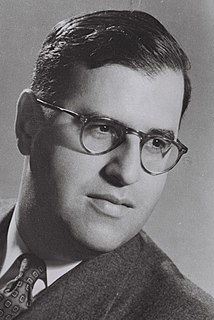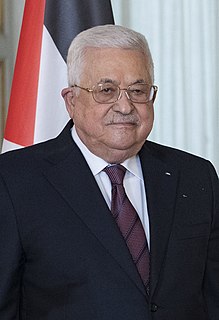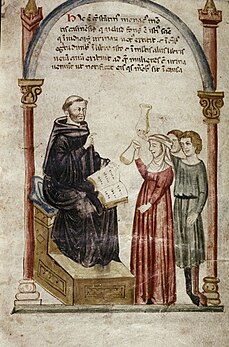Related Research Articles

Carthage was the capital city of the ancient Carthaginian civilization, on the eastern side of the Lake of Tunis in what is now Tunisia. Carthage was one of the most important trading hubs of the Ancient Mediterranean and one of the most affluent cities of the classical world.

Abba Solomon Meir Eban was an Israeli diplomat and politician, and a scholar of the Arabic and Hebrew languages.

Abul-Abbas was an Asian elephant brought back to the Carolingian emperor Charlemagne by his diplomat Isaac the Jew. The gift was from the Abbasid caliph Harun al-Rashid and symbolizes the beginning of Abbasid–Carolingian relations. The elephant's name and events from his life are recorded in the Carolingian Annales regni Francorum, and he is mentioned in Einhard's Vita Karoli Magni. However, no references to the gift or to interactions with Charlemagne have been found in Abbasid records.

Mahmoud Abbas, also known by the kunya Abu Mazen, is the president of the State of Palestine and the Palestinian National Authority. He has been the chairman of the Palestine Liberation Organization (PLO) since 11 November 2004, PNA president since 15 January 2005, and State of Palestine president since 8 May 2005. Abbas is also a member of the Fatah party and was elected chairman in 2009.
The King of Tyre was the ruler of Tyre, the ancient Phoenician city in what is now Lebanon. The traditional list of 12 kings, with reigns dated to 990–785 BC, is derived from the lost history of Menander of Ephesus as quoted by Josephus in Against Apion I. 116–127. Josephus asserts that Menander had drawn his list from the chronicles of Tyre itself. Menander-Josephus also contains a list of 9 kings and judges, with reigns dated to 591–532 BC in Against Apion I. 154–160.

The Book of Wisdom, or the Wisdom of Solomon, is a Jewish work written in Greek and most likely composed in Alexandria, Egypt. Generally dated to the mid-first century BC, the central theme of the work is "wisdom" itself, appearing under two principal aspects. The first aspect is, in its relation to humankind, wisdom is the perfection of knowledge of the righteous as a gift from God showing itself in action. The second aspect is, in direct relation to God, wisdom is with God from all eternity. It is one of the seven Sapiential or wisdom books in the Septuagint, the others being Psalms, Proverbs, Ecclesiastes, Song of Songs, Job, and Sirach. It is included in the canons of the Catholic Church and the Eastern Orthodox Church. Most Protestants consider it part of the Apocrypha.

Constantine the African was a physician who lived in the 11th century. The first part of his life was spent in Ifriqiya and the rest in Italy. He first arrived in Italy in the coastal town of Salerno, home of the Schola Medica Salernitana, where his work attracted attention from the local Lombard and Norman rulers. Constantine then became a Benedictine monk, living the last decades of his life at the abbey of Monte Cassino.
Novatian was a scholar, priest, and theologian. He is considered by the Catholic Church to have been an antipope between 251 and 258. Some Greek authors give his name as Novatus, who was an African presbyter.
Well poisoning is the act of malicious manipulation of potable water resources in order to cause illness or death, or to deny an opponent access to fresh water resources.

Abba Kovner was a Polish Israeli poet, writer and partisan leader. In the Vilna Ghetto, his manifesto was the first time that a target of the Holocaust identified the German plan to murder all Jews. His attempt to organize a ghetto uprising failed, but he fled into the forest, joined Soviet partisans, and survived the war. After the war, Kovner led Nakam, a paramilitary organization of Holocaust survivors who sought to take genocidal revenge by murdering six million German people, but Kovner was arrested in the British Zone of Occupied Germany before he could successfully carry out his plans. He made aliyah to the State of Israel in 1947. Considered one of the greatest authors of Modern Hebrew poetry, Kovner was awarded the Israel Prize in 1970.

Abba Ahimeir was a Russian-born Jewish journalist, historian, and political activist. One of the ideologues of Revisionist Zionism, he was the founder of the Revisionist Maximalist faction of the Zionist Revisionist Movement (ZRM) and of the clandestine Brit HaBirionim.
Abba bar Abba was a Jewish Talmudist who lived in Babylonia in the 2nd-3rd centuries.
Revisionist Maximalism was a short-lived movement and Jewish militant ideology which was part of the Brit HaBirionim faction of the Zionist Revisionist Movement (ZRM) created by Abba Ahimeir.

Farahabad was a palace and city built by Shah Abbas I in Mazandaran, Iran. It was built on a site formerly known as Tahan and linked to the town of Sari, 17 miles (27 km) away, by a stone causeway. The shah used the city as his winter capital, and he died there in 1629.
The Other Side: the Secret Relationship Between Nazism and Zionism is a book by Mahmoud Abbas, published in 1984 in Arabic. It was re-published in 2011. It is based on his CandSc thesis, completed in 1982 at Patrice Lumumba University under the title The Connection between the Nazis and the Leaders of the Zionist Movement, and defended at the Institute of Oriental Studies of the Soviet Academy of Sciences. The central thesis of the book is that the Zionist movement and its leaders were "fundamental partners" of the Nazis and equally responsible for the Holocaust.
Abba or Raba (Rabbah) Bar Jeremiah was Babylonian rabbi of the third century.
Abba bar Hiyya b. Abba was a Jewish rabbi who flourished at the beginning of the fourth century CE. He was the son of Hiyya bar Abba, the well-known pupil of Johanan, and transmitted to his generation the sayings of Johanan, which in their turn had been delivered to him by his father. He was on terms of intimate friendship with Rabbi Zeira.

The Annapolis Conference was a Middle East peace conference held on 27 November 2007, at the United States Naval Academy in Annapolis, Maryland, United States. The conference aimed to revive the Israeli–Palestinian peace process and implement the "Roadmap for peace". The conference ended with the issuing of a joint statement from all parties. After the Annapolis Conference, the negotiations were continued.

History of the Jews in Carthage refers to the history and presence of people of Jewish ancestry in ancient Carthage.

Mansour Abbas is an Israeli Arab politician. He is currently the leader of the United Arab List and represents the party in the Knesset. He was appointed as the chair of Special Committee on Arab Society Affairs in the Knesset on 27 April 2021.
References
![]() This article incorporates text from a publication now in the public domain : Bacher, William (1901). "Abba of Carthage". In Singer, Isidore; et al. (eds.). The Jewish Encyclopedia . Vol. 1. New York: Funk & Wagnalls. p. 31.
This article incorporates text from a publication now in the public domain : Bacher, William (1901). "Abba of Carthage". In Singer, Isidore; et al. (eds.). The Jewish Encyclopedia . Vol. 1. New York: Funk & Wagnalls. p. 31.